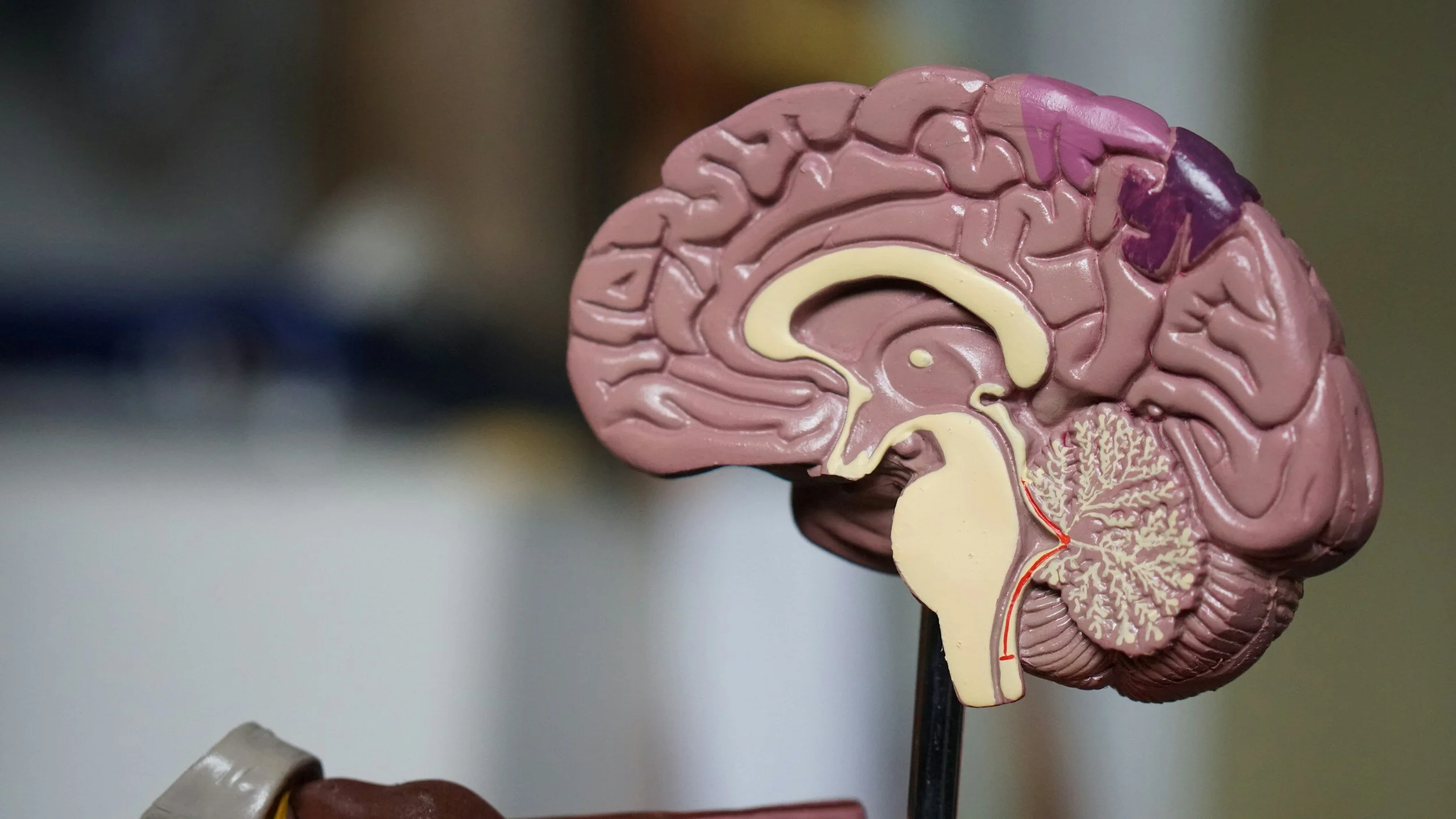How to Relieve Brain Fog with Phospholipids
What are Phospholipids?
Phospholipids are essential fats that form the building blocks of our cell membranes, particularly in the brain. Their unique structure—a hydrophilic (water-loving) head and hydrophobic (water-fearing) tails—allows them to form bilayers, giving cells their integrity and flexibility.
Phospholipids play a critical role in brain health and cognitive function. Studies suggest that increasing phospholipid intake through diet or supplements can help alleviate brain fog, fatigue, and support overall mental clarity.
How Phospholipids Improve Brain Fog
Phospholipids may relieve brain fog by supporting several key biological processes:
Enhancing Mitochondrial Function
Improves energy production for optimal brain function.
Promoting Neurotransmitter Production
Supports the production of dopamine and serotonin, which regulate mood and focus.
Improving Neural Communication
Ensures efficient signal transmission between neurons, enhancing mental clarity.
Regulating the HPA Axis
Reduces cortisol levels to promote hormonal balance and stress management.
Boosting Testosterone in Men
Helps maintain cognitive function through hormonal regulation.
Phospholipid Supplements: Benefits and Options
Phospholipid liposomes, a form of phospholipid supplementation, have been studied for their effects on brain fog, depression, ADHD, and neurodegenerative diseases. These liposomes can cross the blood-brain barrier, enabling them to directly influence the central nervous system.
Common Types of Phospholipid Supplements:
Phosphatidylcholine (PC)
Aids in maintaining cellular structure and function.
Phosphatidylethanolamine (PE)
Supports cognitive and neural processes.
Phosphatidylserine (PS)
Enhances memory, mood, and cognition.
Phosphatidic Acid (PA)
Acts as a precursor to other phospholipids.
Clinical Evidence:
A trial in elderly individuals with memory deficits showed significant cognitive improvements after 300 mg of PS daily for 3 months.
In a study of Alzheimer’s patients, the same dose of PS improved memory, mood, and cognition.
Common supplements contain a combination of phosphatidylcholine (PC), phosphatidylethanolamine (PE), and or phosphatidylserine (PS). These liposomes can cross the blood-brain barrier, where they can have effects on the central nervous system. Additionally, phosphatidic acid (PA) is a precursor to the above lipids and can used as a supplement.
The best-studied phospholipid liposome is Liposom Forte, an injectable available by doctor’s prescription.
While an injectable will always be the most potent and efficacious option, oral phospholipids may also benefit. Many clinical trials using oral preparations show symptom benefits. For example, a small trial in elderly people with memory deficits given 300mg of oral phosphatidylserine daily for 3 months resulted in statistically significant cognitive improvements. A larger trial in Alzheimers patients also given 300mg of PS per day showed significant improvements in memory, mood, and cognition.
Lipogen products* have been studied in randomized, controlled, double-blind clinical trials. (See their published studies here.) These contain 400mg each of phosphatidylserine and phosphatidic acid. These formulas are a more potent and cheaper alternative to most PS, PC, or PE products on the market, which tend to be exorbitantly expensive.
DHA as an Alternative:
Supplemental DHA (docosahexaenoic acid), an omega-3 fatty acid found in fish oil, is broken down into phospholipids and lysophosphatidylcholine. These components can cross the blood-brain barrier, offering similar benefits to phospholipid supplements.
Phospholipids in the Diet
To naturally increase phospholipid intake, include the following foods in your diet:
Phospholipid-Rich Foods:
Egg yolks
Soybeans and soy lecithin
Nuts and seeds
Fish oil and krill oil
Challenges for Plant-Based Diets
Phospholipids are less abundant in plant-based diets, but certain vegan-friendly options can help:
Soy Lecithin:
A concentrated source of phospholipids derived from soybeans.Choline-Rich Plant Foods:
Broccoli, Brussels sprouts, and quinoa can boost phospholipid production in the body.Nuts and Seeds:
Provide small amounts of phospholipids to support brain health.
Bottom Line: Phospholipids for Brain Fog Relief
Whether through diet or supplementation, phospholipids offer a powerful way to enhance brain health and relieve brain fog. Their ability to support mitochondrial function, neurotransmitter production, and neural communication makes them a key tool for improving cognitive clarity and reducing fatigue.
Recommendations:
Incorporate phospholipid-rich foods like egg yolks, soy, and fish oil into your diet.
For additional support, consider supplements containing phosphatidylcholine, phosphatidylserine, or DHA.
Explore clinical-grade options like Lipogen products or consult a healthcare provider for injectable solutions.
By understanding the role of phospholipids in brain function, you can take proactive steps to reduce brain fog and improve your mental clarity.
*I have no financial affiliation with the above products.
References
Menichetti F. The Potential Role of Hypothalamic Phospholipid Liposomes in the Supportive Therapy of Some Manifestations of Post-COVID-19 Condition: Myalgic Encephalomyelitis/Chronic Fatigue Syndrome (ME/CFS) and Brain Fog. J Clin Med. 2023;12(17):5478. Published 2023 Aug 23. doi:10.3390/jcm12175478 https://pubmed.ncbi.nlm.nih.gov/37685544/
Hellhammer J, Vogt D, Franz N, Freitas U, Rutenberg D. A soy-based phosphatidylserine/ phosphatidic acid complex (PAS) normalizes the stress reactivity of hypothalamus-pituitary-adrenal-axis in chronically stressed male subjects: a randomized, placebo-controlled study. Lipids Health Dis. 2014;13:121. Published 2014 Jul 31. doi:10.1186/1476-511X-13-121 https://pubmed.ncbi.nlm.nih.gov/25081826/
Schreiber S, Kampf-Sherf O, Gorfine M, Kelly D, Oppenheim Y, Lerer B. An open trial of plant-source derived phosphatydilserine for treatment of age-related cognitive decline. Isr J Psychiatry Relat Sci. 2000;37(4):302-307. https://pubmed.ncbi.nlm.nih.gov/11201936/
Moré MI, Freitas U, Rutenberg D. Positive effects of soy lecithin-derived phosphatidylserine plus phosphatidic acid on memory, cognition, daily functioning, and mood in elderly patients with Alzheimer's disease and dementia. Adv Ther. 2014;31(12):1247-1262. doi:10.1007/s12325-014-0165-1 https://pubmed.ncbi.nlm.nih.gov/25414047/
Fourrier C, Remus-Borel J, Greenhalgh AD, et al. Docosahexaenoic acid-containing choline phospholipid modulates LPS-induced neuroinflammation in vivo and in microglia in vitro. J Neuroinflammation. 2017;14(1):170. Published 2017 Aug 24. doi:10.1186/s12974-017-0939-x https://pubmed.ncbi.nlm.nih.gov/28838312/

